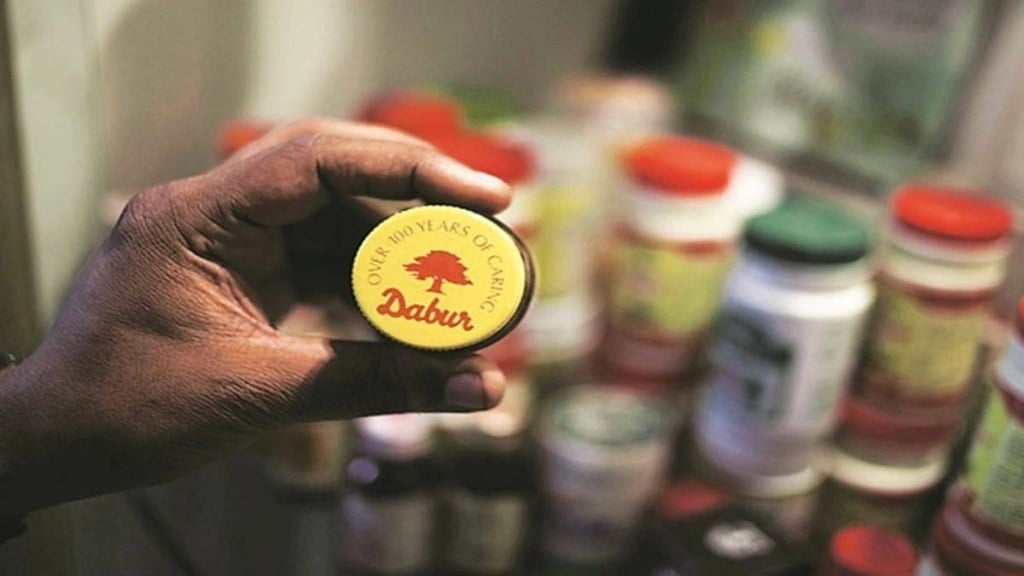Dabur India will be launching all of its new products in a digitally first environment or through e-commerce channels going forward. This is its strategy to save on investments in establishing new products in a high inflationary environment. Additionally, with foods being an inflation-resistant category, the FMCG major is also beefing up focus on the segment.
“This (launches through e-commerce) is a good standard playbook that we have established for new product development. This is also helping us conserve the investments which is going behind establishing a new product because e-commerce is a little more economical channel,” Mohit Malhotra, CEO, Dabur India, told analysts over the second quarter earnings call on Thursday.
Also Read| Shiprocket goes live on government’s e-commerce platform ONDC as its first inter-city logistics provider
Malhotra said the investments in the e-commerce channel are not huge and if the same product is launched all out in general trade, investments on mass media, especially in the Hindi satellite, are heavy. “This burns a hole in our pockets and with inflation being there, we cannot afford to do that,” he said.
Also, as consumers on e-commerce are early adopters and want to try new products and brands, the launches are working out well for the company. “There have been no exceptions to this off late and once we launch there, we will roll it out in modern trade and then followed by GT,” he added.
The e-commerce channel saw a growth of 50% for Dabur in the quarter ended September 30 and now contributes to around 9% to its revenues, while modern trade is at 10% contribution.
In the recent times, Dabur has launched a sanitary napkins range through e-commerce, a peanut butter range under Real brand, its baby care products range, apple cider vinegars, products in juices and drinks, and edible oils. “The new products contribution on e-commerce is already 11% for us. We will test the market to see how it fares before we roll it out to modern trade like we do with most of our key products,” Malhotra said.
Also Read: Payments infra company Infibeam Avenues gets RBI approval to operate as payment aggregator
The company has put in a separate infrastructure and also a business head for e-commerce, and Malhotra said the business is being monitored closely, and showing sequential growth. The contribution from e-commerce was 2-3% four years ago for Dabur.
As a strategy, he said the company is launching only those products where it has a “right to win”, and is not looking at competing with organised or large players, but rather with digitally first brands in that space.
“We generally compete with digital-first players and they do not have the wherewithal to scale the business in the general trade or brick-and-mortar channels where we have our strength and we can scale up. Also, we are not launching in areas where we have strength, we are launching it on their turf which is digitally first, and if we do well in that digitally space, our chances of success in turfs where we are strong is very positive which is modern trade and general trade, which will come later for us,” Malhotra said.
On the foods and beverage portfolio, he added that the company has a vision to expand from the current beverage portfolio to a both food and beverage portfolio. “We have a 70% market share in the beverage play, but we would like to extend this to the food segment,” he said.
Dabur on Wednesday announced the acquisition of Badshah Masala, which is in line with its strategic intent to expand its foods business to `500 crore in three years and expand into new adjacent categories.
The company is also expanding its juices and mixers range under Real beyond urban centres and targeting rural markets and towns beyond class 1 in nature.
Commenting on the reasons for increased focus on F&B as a category, Malhotra said, “In the inflationary environment like this, when all companies are taking price increases, there are some categories which are more elastic than the others. The food and staples market in India remains largely unbranded in nature. So, no matter how much the inflation, or the market passes on the inflationary pressure to the consumer, this is an inelastic demand, be it edible oils or food. Which is why food category is growing at a fast pace.”

